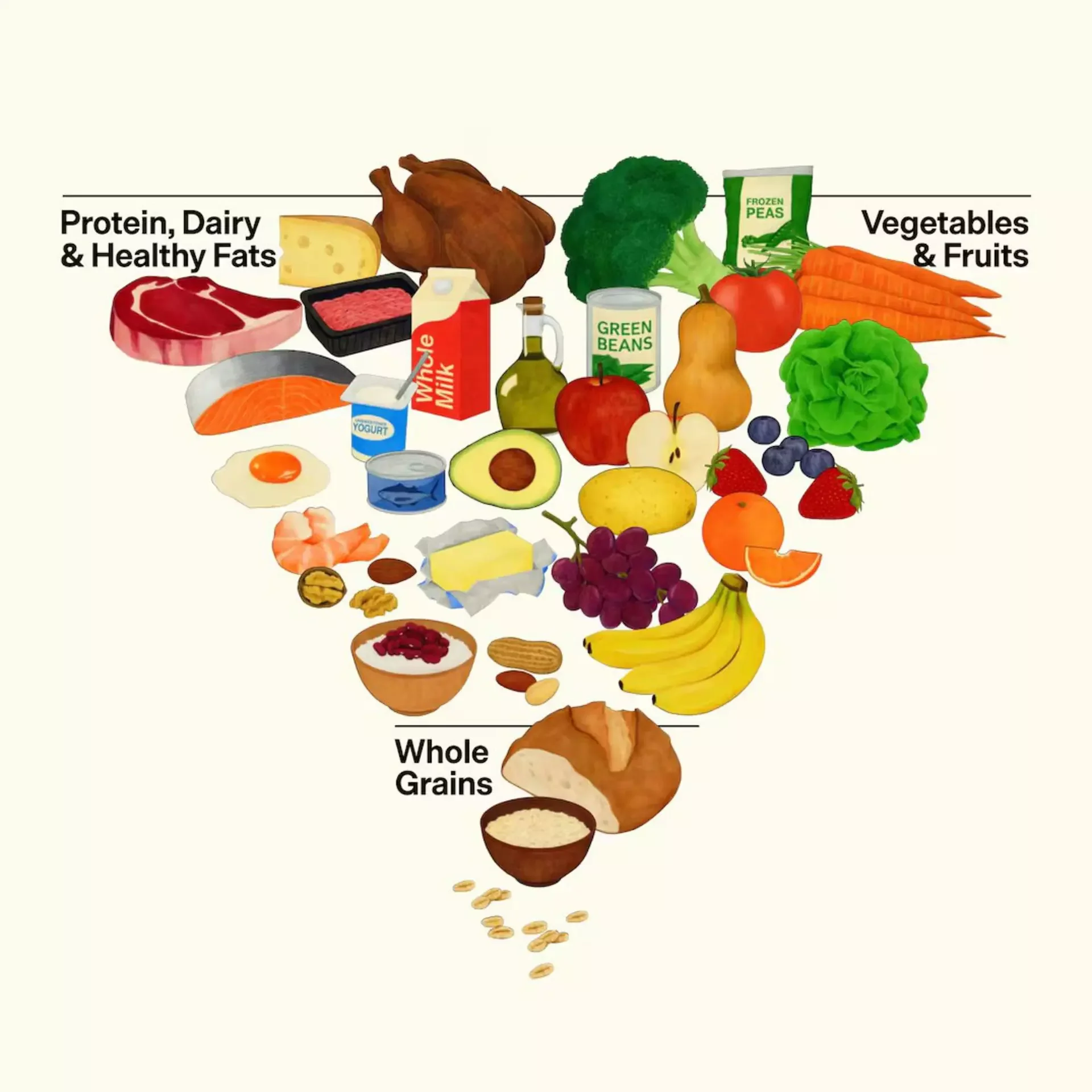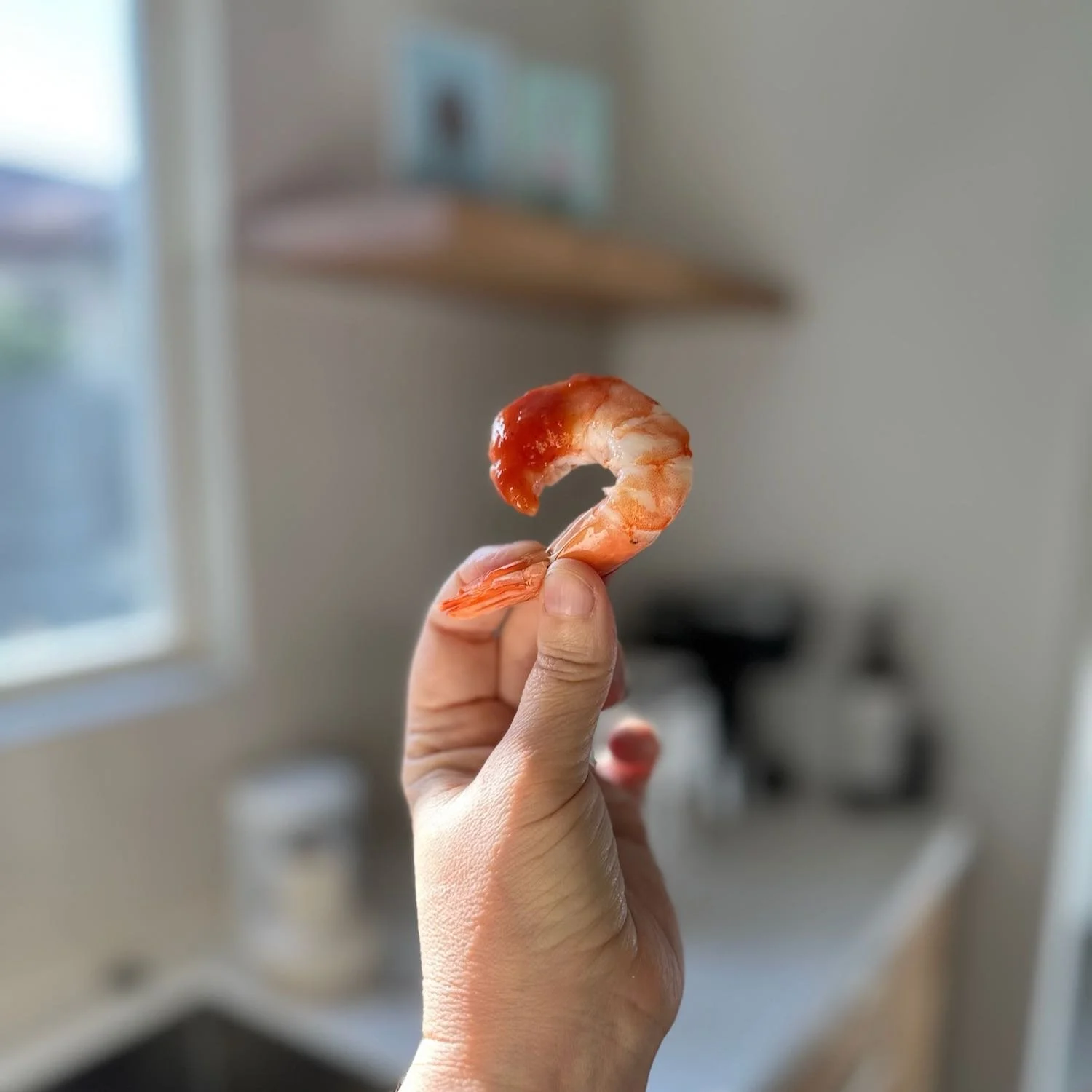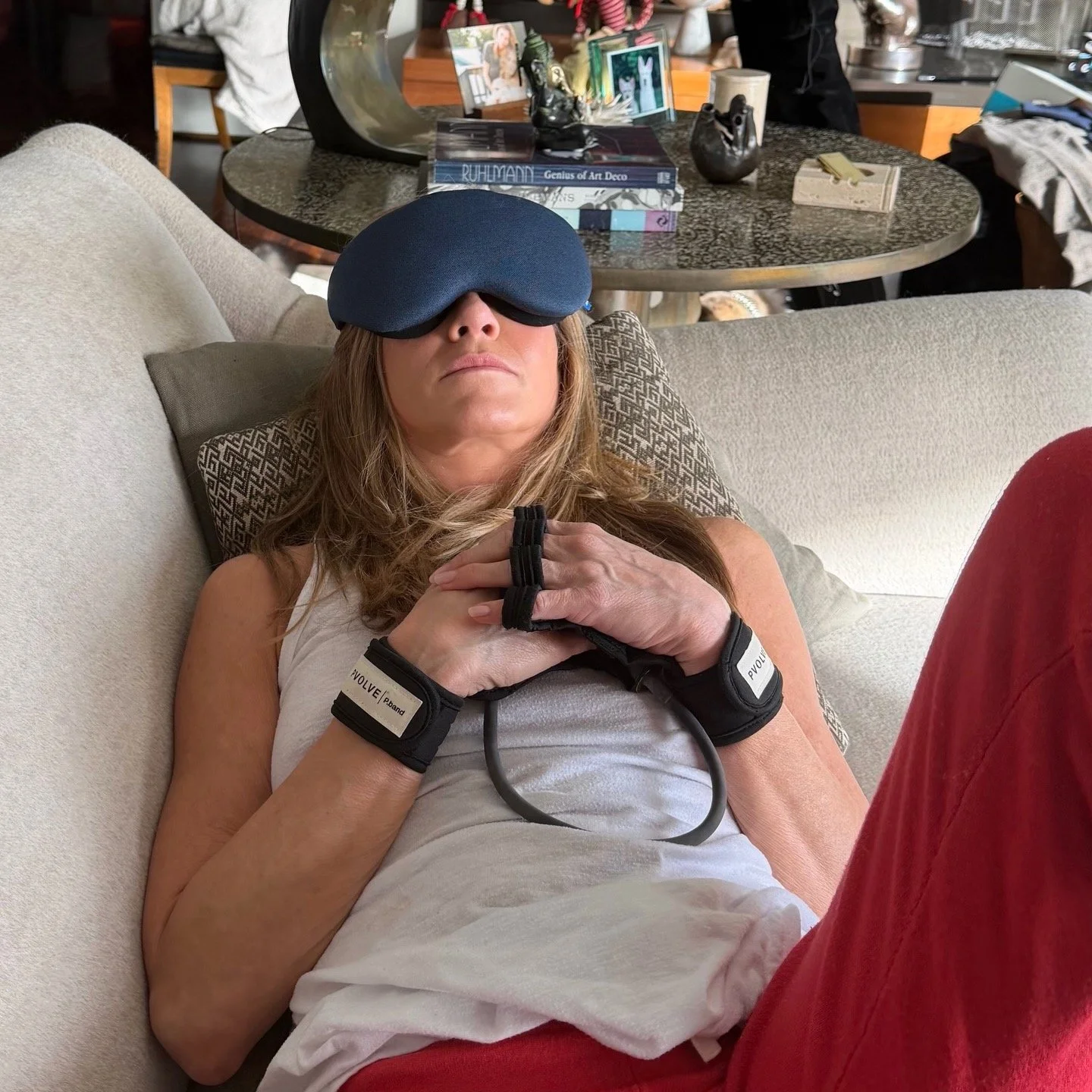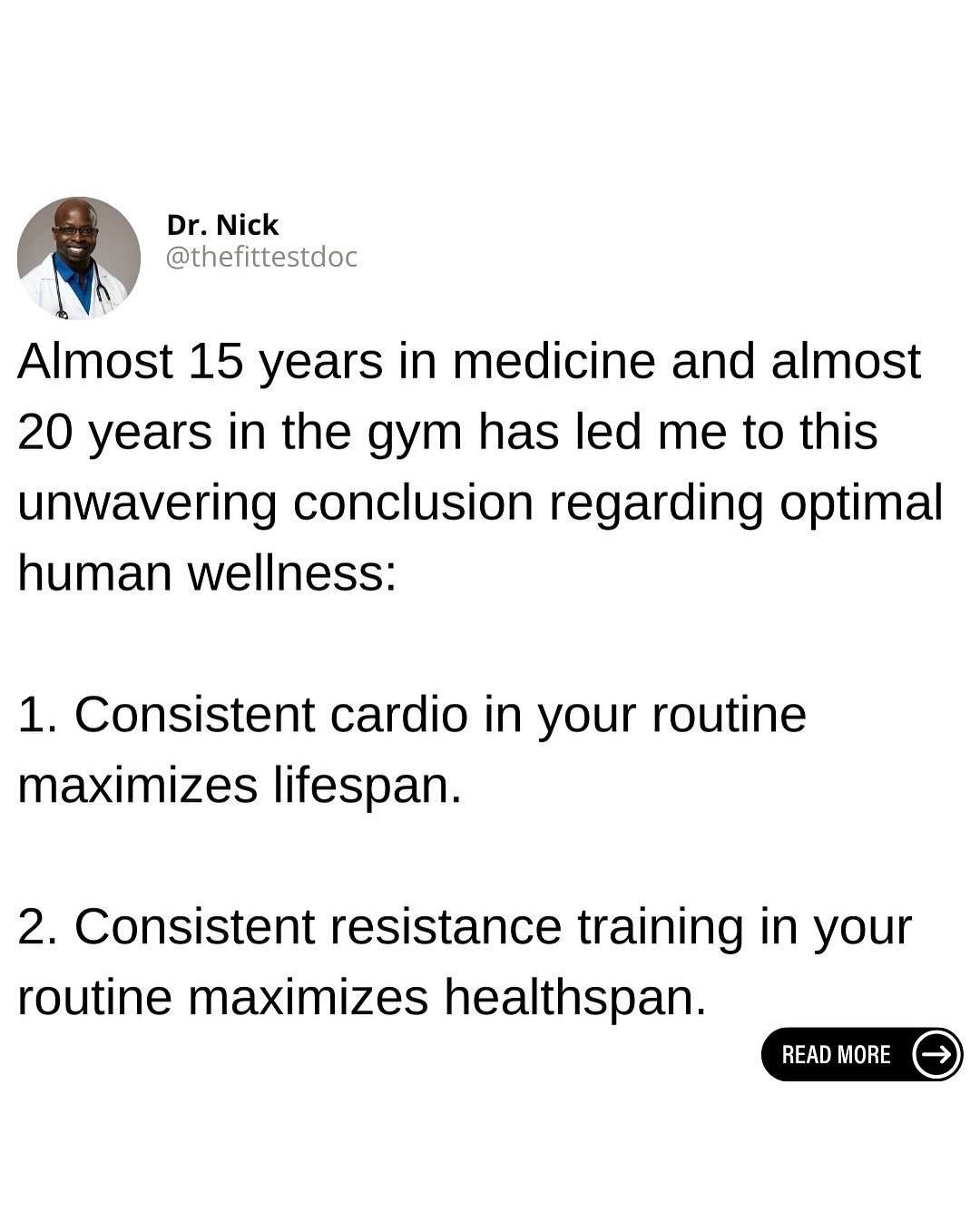4 Things To Do For Your Health To Save Your Own Life. Because The Healthcare System Is Broken.
I guess we’re doing this ourselves, guys.
by The Candidly Team
Did you know that of all the trillions of medical dollars spent in America, only 3% is put toward prevention?
To add insult to (probably preventable) injury, health funding, in general, is being severely slashed.
And all of this is happening at same time that surveys are showing 1 in 5 Americans are turning to TikTok for health advice before their own physician.
Right. Now is usually the time we’d type something trite and trivializing like “eek” or, even worse, include some distress emoji. In truth, what we all feel in hearing this kind of thing is probably best expressed in language that gets us blocked from Instagram.
So for that reason, and because stress gets us nowhere except closer to death and disease, we thought we’d take a non-doom and gloom approach. Instead, we want to talk about a few of the most critical things we can do to take matters into our own hands where our health is concerned. To cut risks. To live longer. To be well.
1. Exercise DAILY to reduce your risk of dying from pretty much everything.
We’re not overstating when we say that sitting too much is killing us. The Physical Activity Guidelines for Americans from 2018 suggests adults do:
At least 150 to 300 minutes per week of moderate exercise (things like walking, weightlifting, activities that get your heart rate up to 50% to 70% of your maximum heart rate, according to The Mayo Clinic)
75 to 150 minutes a week of vigorous exercise (things like running, swimming laps, aerobics, activities that get your heart rate up to about 70% to 85% of your max heart rate.
An equivalent combo of both
However…
a massive study recently showed that people who do more than the recommended amount, can significantly lower their risk of death.
For example, people who did two to four times more than the recommended amount of moderate physical activity had a 26% to 31% lower all-cause mortality, and people who did two to four times more than the recommended amount of vigorous physical activity had a 21% to 23% lower risk of all-cause mortality.
So how can you get started?
There are obviously a million ways - all deeply personal to who you are and what motivates you, but here are some universally doable, start-on-your-own ideas:
Total Beginner: There are tons of full body 20-30 minute videos online geared toward beginners that don’t cause complete and total overwhelm like THIS and THIS. If you want something low key you can start in your living room, this will ease you in with the least extra “work” required to make it happen.
Sorta Motivated: Invest in a walking pad. We’re serious. It is a true life-changing hack. It’s compact, easy to move around, hide away, and it costs as much as a fancy dinner. Try to hit 10k steps a day at a brisk pace (at least 3MPH). You can do this while binging Real Housewives or rewatching Friends for the 138th time. Or if you work from home, you can do it at a standing desk. We are, in all seriousness, typing this article on ours right now.
Combine this with using weights at least twice a week. Strength training is cri-ti-cal for women over 40 and one of the most powerful ways to keep up our metabolism. We bought THESE and started doing THIS arm workout, and it’s wild how doable it feels with us barely having to think about it.
Quick note: None of this has to cost a lot. We bought THIS and THIS and immediately started accidentally walking an average of two hours a day.
Very Motivated: Set a goal of 15k steps a day, which you can do outside or on treadmill, walking pad, etc. Combine this with 4 weight training days per week. You might want to use a ladder-style workout that builds things up round by round and makes you feel wildly accomplished. We like THIS one.
2. Stop drinking to cut your cancer risk.
We know you don’t like this one. We didn’t either. Even those of us who don’t or rarely drink aren’t thrilled to see something so commonly engaged in and enjoyed by those we love is so deeply harmful to health. We recently got into why alcohol is as bad for us as it is, including that yes, it causes cancer. The quick breakdown is, it can contribute to cancer, heart disease, liver disease, high blood pressure, stroke, digestive issues, weaker immunity, depression, anxiety, and dementia.
And look, we would much rather tell you “everything in moderation” or “enjoy a glass of red wine,” but the reality is that half of the things that really reward our health are going to be about NOT doing things as opposed to doing things. And drinking alcohol is one of those things where skipping out can have wondrous effects on our wellness.
3. Phase out highly processed foods to stave off heart disease and increase your lifespan.
Another major reason life expectancy might have fallen, as suggested by the Mayo Clinic is that our “eating habits shifted away from minimally processed whole foods and toward ultraprocessed foods … Higher consumption of processed foods to an increased risk of death from cancer and heart disease.”
In fact, diets high in ultraprocessed foods have been “linked to more than 30 health conditions.” According to the American Medical Association, “ultraprocessed foods are industrial creations,” often containing high amounts of:
Added sugar
Salt
Artificial colors
Additives
Here’s a little guide we found helpful to illustrate the basics:
4. Sleep enough to maintain a strong heart, brain, and metabolism.
We don’t want to put you to sleep by saying it, but we need, need, NEED good and adequate sleep. When we don’t get it, here’s what can happen:
We eat more.
We have more belly fat.
Our blood pressure goes up.
Our blood sugar goes up.
Our brain function declines
It increases stress, which comes with its own barrage of health problems.
Our hormones get thrown.
And when we sleep enough:
We get sick less.
Our mood and mental health symptoms improve.
Our weight is more balanced.
Our metabolism stays stronger.
We lower our risk of diabetes and heart disease
According to the CDC, adults should aim for this much sleep:
18–60 years - at least 7 hours
61–64 years - 7–9 hours
65 years and older - 7–8 hours
So yes, we didn’t shake up your worldview or sell you some miracle supplement, but these are the things we hold in our power that can be the key to prevention for pretty much every health issue under the sun.
Which, in a way, we find comforting. If nothing else, it tells us to keep going. And to not feel guilty about going to bed at 9PM instead of drinking with friends and feeling like a bloated pile of sweaty garbage in the morning. So there’s that.
This article is for informational purposes only. It is not intended to be used in place of professional advice, medical treatment, or professional care in any way. This article is not intended to be and should not be a substitute for professional care, advice or treatment. Please consult with your physician or healthcare provider before changing any health regimen. This article is not intended to diagnose, treat, or prevent disease of any kind. Read our Terms & Conditions and Privacy Policy.







